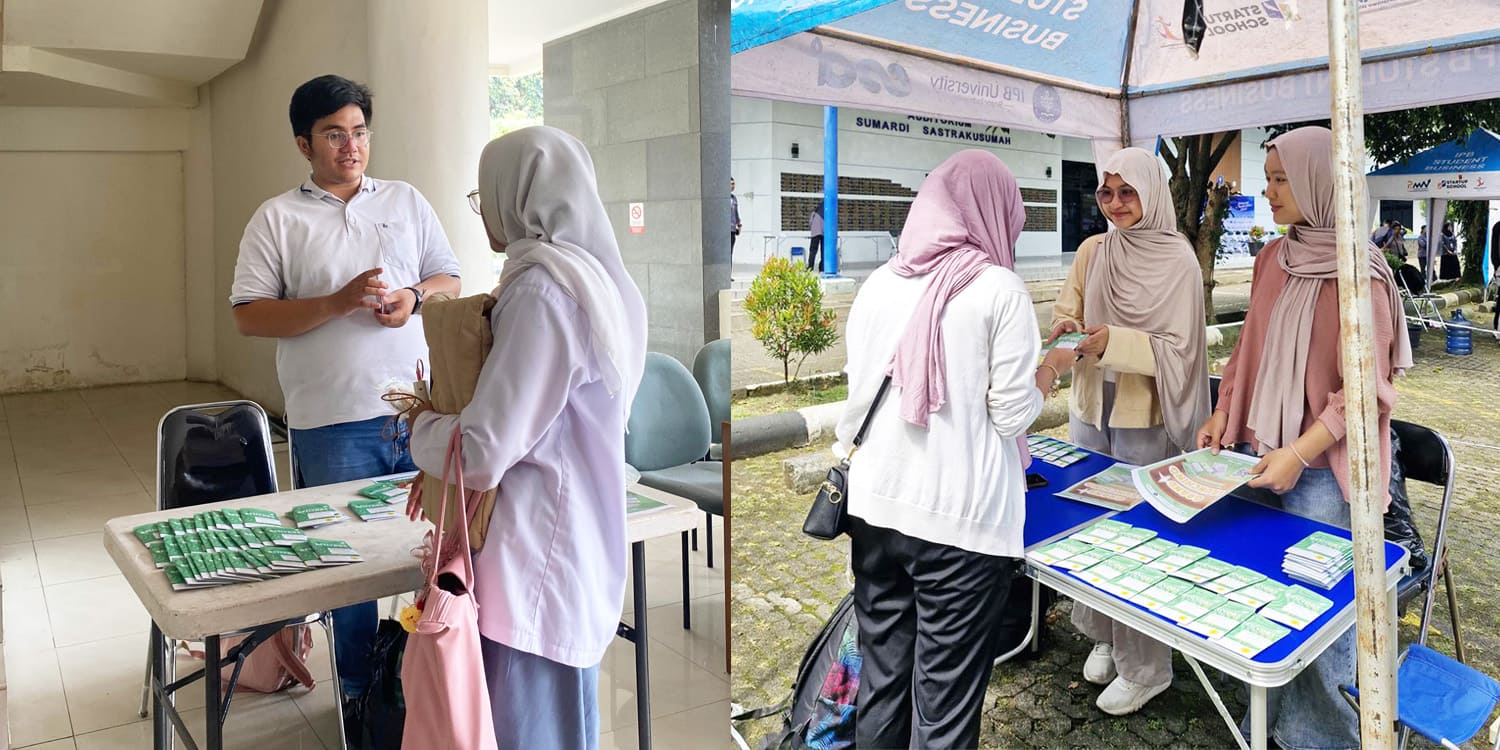A group of students from IPB University have successfully developed ActivPax – an eco-friendly active paper innovation designed to extend the shelf life of food. This innovative product is made from agar waste and water hyacinth.
One of the initiators, Aditya Dewanto, explained that ActivPax was inspired by concerns about high levels of food loss and food waste in Indonesia, largely due to improper food storage practices.
“Solid residue from agar processing is often thrown away, even though it still contains valuable organic components such as cellulose, hemicellulose and lignin. Meanwhile, water hyacinth, an invasive plant species, remains unused,” he said.
Aditya further explained that the main ingredients of ActivPax consist of cellulose fibers obtained from by-products of the agar industry, combined with fibers from water hyacinth. The mixture is then infused with activated carbon, which absorbs moisture and gases that lead to spoilage.
“We also incorporated essential oil that is extracted from it Coleus amboinicus Leaves known for its natural antibacterial and antioxidant properties. The combination of these materials ensures that ActivPax effectively maintains the freshness and safety of food,” said Aditya, a student at Management study program at IPB University.
ActivPax is specifically designed to extend the shelf life of perishable foods, particularly fresh fish and meat, which are highly susceptible to quality degradation due to microbial growth during storage.
Test results show that ActivPax can extend the shelf life of products by up to seven days under refrigerated conditions (0-5°C) without altering their natural color, texture or aroma.
According to Aditya, this innovation is in line with the spirit of Asta Cita, particularly in supporting national food security, promoting a sustainable green economy and strengthening innovation-based industrialization driven by Indonesia's youth.
“We hope that ActivPax can serve as a concrete solution to reduce waste from the agar processing industry while creating a high-quality, environmentally friendly product. In addition, we also want to contribute to Asta Cita's goals of building food self-sufficiency, strengthening a resource-based economy and supporting sustainable development in Indonesia,” he concluded.
ActivPax is currently being developed as part of the Student Creativity Program (PKM). The team is led by Aditya Dewanto, with members Rafi Pranaja and Zachra Lutviani (Aquatic Product Technology), Syakira Nisrina Hardianti (Nutrition Science) and Aura Ahza Hanania (Food Science and Technology). They will be supervised by Prof. Joko Santoso, a lecturer from the Faculty of Fisheries and Marine Sciences. (d) (IAAS/TIR)
